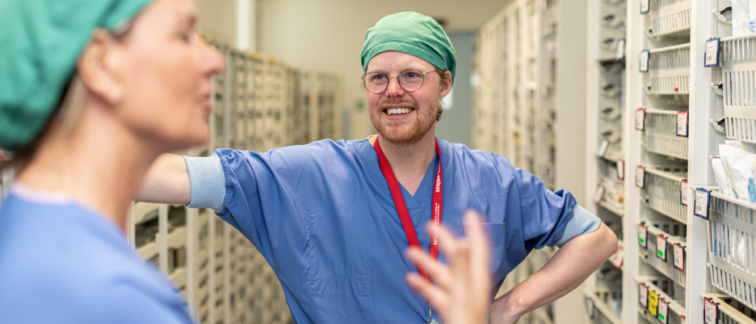Washable surgical caps are significantly better for the environment than disposable ones. This sounds logical, but now, for the first time, it has also been scientifically proven. APH researchers Eva Cohen and Niek Sperna Weiland have researched
the concept of washable surgical caps.
In the quest to make healthcare more sustainable, many studies are being conducted worldwide on the environmental and climate impact of materials in hospitals. A study of surgical caps, although widely used, was still lacking. This prompted Niek Sperna Weiland (Medical specialist at Amsterdam UMC) and the Green Team OK to introduce reusable ones to the department and conduct research into them. They started with a pilot session in which the washable caps were tested for comfort, style and logistical feasibility. Feedback from the employees resulted in a prototype that became available in three sizes and colors.
Eva Cohen (PhD candidate at Amsterdam UMC): "In terms of effectiveness and safety, the washable surgical caps meet all requirements equally well. A recent certification study found that washable surgical caps can be reused 100 times, reducing their environmental impact after only 16 to 19 uses compared to disposable caps. The washable caps outperformed disposable caps in terms of impact factors in 16 out of 17 categories. The study, published in JAMA Surgery, aimed to reach as many healthcare professionals as possible to promote the use of washable caps.
The researchers believe that the impact will be greater when this transition is implemented on a larger scale. Replacing all disposable caps with washable ones could result in a waste reduction of 94 percent. If 1 billion disposable caps worldwide were replaced with 10 million reusable caps, the CO2 reduction would be equivalent to not using 2,000 passenger cars for a year. They also emphasized the symbolic value of the highly visible washable caps, which can serve as a daily reminder of the need for a transition to a circular healthcare model.
Cohen: "Green Teams in many hospitals have been looking forward to our study results. We hope we can soon put these findings into practice and move on to actual implementation."

